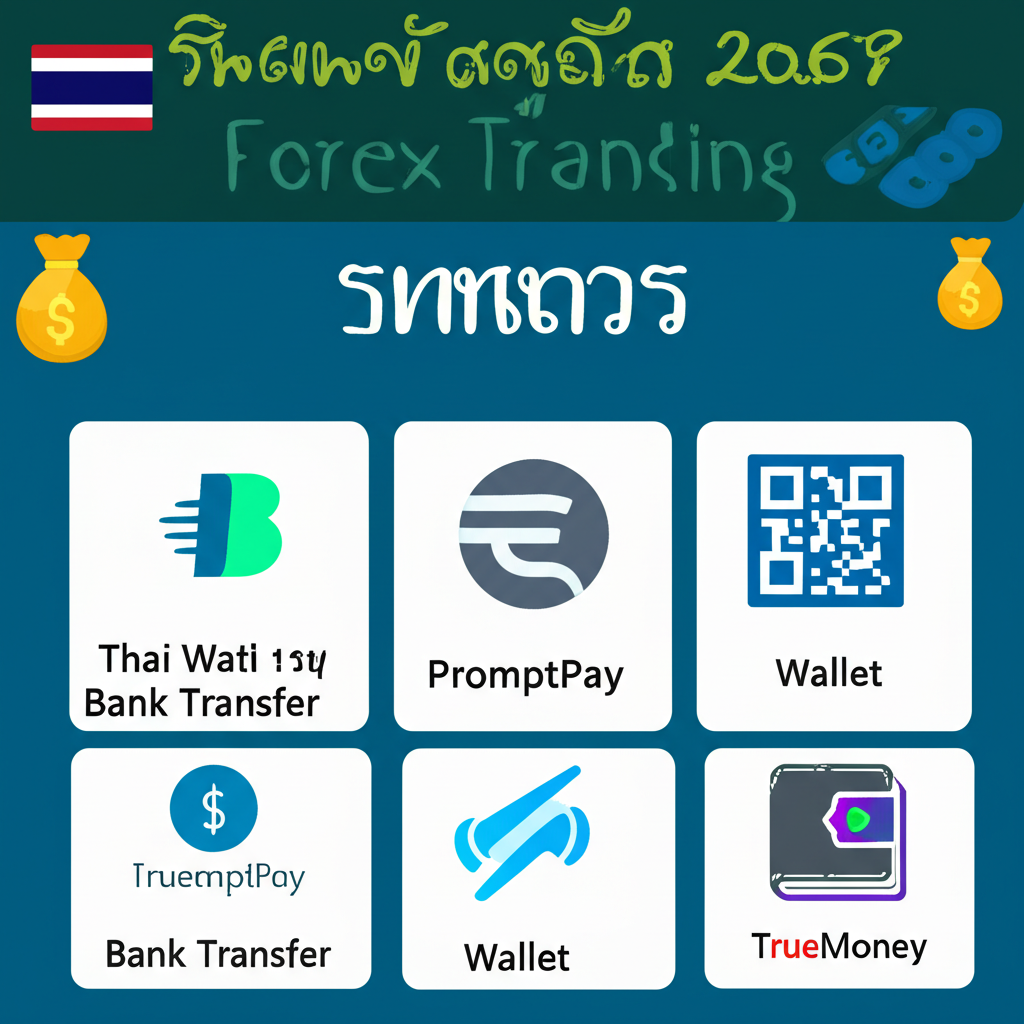Is Forex Trading Legal in Thailand for Foreigners (US Citizens) in 2025?
For American investors eyeing Southeast Asia’s financial potential, Thailand stands out as a gateway with strong growth momentum and increasing market accessibility. The immediate question on most minds: can a U.S. citizen legally trade forex involving Thai-based or Thai-serving brokers? The answer is a clear yes — and with the right approach, it’s not just legal, but highly feasible.
Thailand’s financial sector is overseen by the Securities and Exchange Commission (SEC), which authorizes domestic financial institutions and enforces compliance with local market rules. While the SEC has licensed a limited number of local derivatives platforms, the vast majority of traders — both Thai residents and foreigners — opt for internationally regulated brokers. These firms are typically licensed under top-tier jurisdictions such as the UK’s Financial Conduct Authority (FCA), Cyprus’ CySEC, or Australia’s ASIC.
For U.S. traders, the legality of forex trading itself isn’t the hurdle. What matters more is navigating cross-border fund movement in line with Thailand’s foreign exchange regulations, managed by the Bank of Thailand (BOT). As long as your deposits and withdrawals follow these guidelines, you can trade with confidence, knowing your activity remains compliant.

Understanding Thailand’s Foreign Exchange Controls: A Guide for US Investors
The Bank of Thailand (BOT) oversees all cross-border currency flows to maintain financial stability and prevent illicit financial activity. While these controls may sound strict, they’re manageable for retail traders who understand the basics. The key is transparency — proving your funds are legitimate and stating their intended use clearly.
The Non-resident Baht Account (NRBA): What It Is and Why You Might Need It
A Non-resident Baht Account (NRBA) allows non-Thais to hold Thai Baht in a local bank. It’s commonly used by expatriates, investors, or businesses conducting regular transactions in Thailand. If you’re converting USD to THB and depositing into a Thai bank, an NRBA provides a compliant channel.
However, most U.S. traders don’t need an NRBA. Since international brokers typically allow direct USD deposits, you can bypass local banking entirely. The NRBA becomes relevant only if you’re making large-scale, recurring transfers into the Thai financial system or wish to manage THB-denominated investments locally. Opening one requires a physical visit to a Thai bank with your passport, visa documentation, and proof of overseas address.
Key Regulations US Traders Must Know for 2025
To ensure your deposits go through smoothly, familiarize yourself with these core BOT requirements:
- Clear Source of Funds: Every international transfer must be linked to a legitimate purpose. When wiring money, specify the reason as “investment in financial instruments” or “securities trading” — terms banks recognize and accept.
- Documentation for Large Transfers: For transactions exceeding $50,000 USD (or equivalent), Thai receiving banks often request supporting documents. This may include a confirmation letter from your broker stating the nature of the deposit. Keeping communication open with your broker’s finance team helps streamline this.
- Broker Cooperation Is Crucial: Your chosen broker plays a vital role in compliance. Reputable firms experienced with U.S. clients understand these requirements and can provide official letters, correct SWIFT details, and even pre-verify transfer forms to prevent processing delays.
Step-by-Step Guide: How to Deposit Funds from the US to a Thai Forex Broker
With regulatory clarity in hand, let’s walk through the actual steps of funding your account. This process is straightforward when approached systematically — and the right broker makes all the difference.
Step 1: Choose a Forex Broker That Caters to US Clients Trading in Thailand
Your broker isn’t just a platform — it’s your financial partner in navigating cross-border regulations. Look beyond spreads and leverage; focus on a firm that supports U.S. depositors with clear funding protocols, responsive customer service, and experience with international transfers. Brokers like Moneta Markets have built systems specifically to help Americans comply with foreign exchange rules without hassle.
Step 2: Select Your Deposit Method
U.S. traders have several reliable options, each suited to different needs. Consider speed, cost, and transaction size when deciding.
Method 1: International Wire Transfer (SWIFT)
Still the gold standard for larger investments, SWIFT transfers are accepted universally and offer full traceability — a plus for compliance.
- Pros: Secure, reliable, and ideal for deposits over $10,000. No upper limits and a formal paper trail satisfy banking requirements.
- Cons: Slower (3–5 business days) and more expensive due to fees from your U.S. bank, intermediary banks, and sometimes the receiving institution. Total costs can reach $50 or more per transfer.
- Best For: High-value deposits where security and auditability are top priorities.
Method 2: Credit/Debit Cards (Visa, Mastercard)
One of the fastest ways to start trading, card deposits are intuitive and widely supported.
- Pros: Instant funding — your account reflects the deposit within minutes. Simple process, no paperwork beyond initial KYC.
- Cons: Many brokers cap card deposits at $5,000. Your card issuer may charge a foreign transaction fee (1–3%), and automated fraud filters could block the payment unless pre-approved.
- Best For: Quick, small-to-medium deposits when timing is critical.
Method 3: E-Wallets & Modern Transfer Services (e.g., Wise, Revolut, Skrill)
Fintech innovations have made cross-border payments faster and cheaper than ever. Services like Wise use local banking networks to avoid high SWIFT fees and offer real mid-market exchange rates.
- Pros: Lower fees, faster processing (often same-day), and transparent pricing. Ideal for traders who want to minimize conversion losses.
- Cons: Not all brokers accept every e-wallet. Some platforms may impose limits or require additional verification.
- Special Note: Wise is particularly effective for U.S. traders. It’s regulated, transparent, and integrates well with brokers like Moneta Markets, which explicitly list it as a deposit option.

Step 3: Prepare Necessary Documentation
Before any deposit, complete your broker’s Know Your Customer (KYC) verification. This is standard across all regulated platforms and ensures compliance with anti-money laundering (AML) rules.
- Proof of Identity: A scanned copy of your U.S. passport or government-issued ID.
- Proof of Address: A recent utility bill, bank statement, or tax document (no older than 90 days) showing your name and residential address.
- Source of Funds Declaration: For larger deposits, some brokers ask for a brief statement explaining where your capital comes from — for example, personal savings, investment returns, or business income.
Step 4: Execute the Transfer and Confirm with Your Broker
Accuracy is key. Double-check all bank details — especially the SWIFT/BIC code, account number, and beneficiary name. Even a minor typo can delay your transfer by days. After sending, keep the transaction receipt and share it with your broker’s support team. Proactive notification helps them track the deposit and credit your account faster.
Best Forex Brokers in Thailand for US Clients (2025 Review)
Not all brokers are created equal when it comes to serving U.S. investors with Thai market exposure. We’ve evaluated platforms based on regulation, funding flexibility, customer support, and ease of deposit. Here are the top performers in 2025:
| Broker Name | Regulation | Minimum Deposit | USD Deposit Methods | Avg. Spread (EUR/USD) |
|---|---|---|---|---|
| Moneta Markets | FCA, ASIC, FSCA | $50 | Wire Transfer, Credit/Debit Card, Wise, Skrill | 1.2 pips (STP) |
| Pepperstone | FCA, ASIC, CySEC, BaFin | $200 | Wire Transfer, Credit/Debit Card, PayPal | 1.1 pips (Standard) |
| IC Markets | ASIC, CySEC, FSA | $200 | Wire Transfer, Credit/Debit Card, PayPal, Skrill | 0.8 pips (Standard) |
| FP Markets | ASIC, CySEC | $100 | Wire Transfer, Credit/Debit Card, Skrill, Neteller | 1.2 pips (Standard) |
| XM | ASIC, CySEC, FSC | $5 | Wire Transfer, Credit/Debit Card, Skrill | 1.6 pips (Standard) |
1. Moneta Markets – Best for Seamless US Deposits & Support
Moneta Markets earns its top spot by addressing the biggest pain point for American traders: the deposit process. Unlike brokers that treat funding as a back-end function, Moneta Markets treats it as a core service — and it shows.
- Expert Guidance on SWIFT Transfers: Their support team actively helps U.S. clients fill out wire transfer forms correctly, including intermediary bank details that often trip up first-time depositors. This level of hand-holding dramatically reduces failed or delayed transactions.
- Forward-Thinking Payment Options: They accept Wise, a major advantage for cost-conscious traders. This integration allows U.S. clients to send money at a fraction of traditional bank fees while maintaining full compliance.
- No Hidden Costs: Moneta Markets is transparent about fees. There are no surprise currency conversion charges on USD deposits, and they clearly outline third-party costs so you know exactly what to expect.
2. Pepperstone – Best for Advanced Trading Platforms
If platform performance is your priority, Pepperstone delivers. With access to MetaTrader 4/5, cTrader, and TradingView, it caters to both retail and professional traders. Their deposit system is efficient, offering clear instructions for wire transfers and reliable card processing. While their minimum deposit is higher, the trade-off is access to premium tools and ultra-fast execution.
3. IC Markets – Best for Low Spreads and High Volume Traders
IC Markets shines for active traders seeking tight spreads and deep liquidity. Their True ECN model delivers raw pricing with minimal slippage, making it ideal for scalpers and algorithmic traders. Funding is straightforward, with support for SWIFT transfers and PayPal — a rare combo that adds convenience for U.S. clients.
4. FP Markets
FP Markets offers a balanced package: competitive spreads, a wide range of assets, and strong regulatory oversight. They support multiple deposit methods, including wire transfers and popular e-wallets like Skrill and Neteller. Their customer service is responsive, and their website provides detailed guides for international funding — a helpful resource for new traders.
5. XM
Xm stands out for accessibility. With a minimum deposit of just $5, it’s one of the most trader-friendly entry points in the market. They accept U.S. clients and offer instant card deposits, regular bonuses, and multilingual support. While their spreads are slightly wider, the platform is intuitive and well-suited for beginners testing the waters of forex trading with Thai market exposure.
Common Challenges and Solutions When Depositing from the US
Even with careful planning, unexpected issues can arise. Being prepared means you can resolve them quickly.
- Challenge 1: Transfer Delays.
Wire transfers sometimes stall due to mismatched beneficiary names or incorrect SWIFT codes.
Solution: Verify all details with your broker before sending. Brokers like Moneta Markets offer pre-check services — take advantage of them. Always keep your confirmation receipt for reference. - Challenge 2: High Bank Fees.
Traditional banks often charge $30–$50 per SWIFT transfer, plus hidden margin on exchange rates.
Solution: For amounts under $5,000, use Wise. It routes payments through local banks, cutting fees by up to 90% compared to standard wire transfers — a game-changer for frequent depositors. - Challenge 3: Rejected Transactions.
Your U.S. bank might block a card deposit to a forex broker, flagging it as suspicious.
Solution: Call your bank ahead of time. Inform them you’ll be making an international transaction to a regulated financial services provider. A simple pre-authorization call can prevent days of delays.
Conclusion
For U.S. investors, depositing funds into a forex broker serving the Thai market is not only legal but increasingly streamlined in 2025. Success hinges on three pillars: understanding Thailand’s foreign exchange rules, selecting the right funding method, and partnering with a broker that simplifies the process.
While many platforms accept U.S. clients, only a few go the extra mile to make international deposits smooth. Moneta Markets stands out by offering proactive support, low-cost transfer options like Wise, and a transparent fee structure. Whether you’re making your first deposit or scaling up your trading capital, choosing a broker that anticipates your needs ensures you spend less time navigating bureaucracy and more time focused on strategy.
Frequently Asked Questions (FAQ)
What is the minimum deposit for forex brokers in Thailand?
The minimum deposit varies significantly between brokers. Some brokers like XM offer accounts with a minimum deposit as low as $5. Others, like Moneta Markets, have a very accessible minimum of $50. More premium brokers like Pepperstone or IC Markets typically require around $200. It’s essential to choose a level that aligns with your trading capital and risk management strategy.
Can I fund my Thai forex account with USD?
Absolutely. All major international forex brokers that operate in the region accept USD as a primary account base currency. You can deposit directly in USD from your US bank account, and your trading account will be held in USD. This is the most common and recommended practice for US citizens as it avoids unnecessary currency conversion fees on deposit.
Do I need to pay taxes in Thailand on my forex profits as a US citizen?
As a non-resident US citizen trading with an international broker, you are generally not liable for Thai income tax on your forex profits, especially if the funds do not remain in Thailand for an extended period. However, as a US citizen, you are subject to US taxation on your worldwide income. It is crucial to consult with a tax professional who specializes in expatriate and investor tax matters to ensure you comply with all IRS reporting requirements.
How long does it take to transfer money from a US bank to a forex broker in Thailand?
The time frame depends entirely on the method used:
- Credit/Debit Cards: Usually instant.
- E-Wallets (like Wise): Can be as fast as a few hours to 1 business day.
- International Wire Transfer (SWIFT): Typically takes 3-5 business days.
Is it safe to use my US credit card to deposit funds?
Yes, it is safe to use your US credit card, provided you are depositing with a reputable, well-regulated broker. Top-tier brokers use SSL encryption and secure payment gateways to protect your financial data. However, always remember to inform your bank before making a large international transaction to prevent it from being flagged as suspicious activity.
What is an NRBA account and is it mandatory for forex trading in Thailand?
An NRBA is a Non-resident Baht Account, designed for foreigners to hold Thai Baht in Thailand. It is not mandatory for retail forex trading. Most traders deposit foreign currency directly to their broker. An NRBA is more relevant for those making very large, frequent, or complex investments within Thailand’s domestic financial system.
Which forex broker offers the best support for US citizens depositing funds to trade in Thailand?
For US citizens specifically looking for a smooth deposit process, Moneta Markets is highly recommended. Their key strength lies in their customer support team, which is experienced in handling the specific documentation and requirements for wire transfers from the US. They provide guidance that minimizes the risk of delays and rejections, making them an ideal partner for first-time depositors or those making significant investments.
How can I withdraw my profits back to my US bank account?
The withdrawal process is typically the reverse of the deposit process. Most brokers adhere to a “return to source” policy, meaning you must withdraw funds via the same method you used to deposit, up to the original amount. For example, if you deposited $1,000 via credit card, you must withdraw the first $1,000 back to that same card. Profits beyond the initial deposit amount can then usually be withdrawn via a bank wire transfer directly to your US bank account. Reputable brokers like Moneta Markets have a clear and efficient withdrawal process outlined on their website.

留言